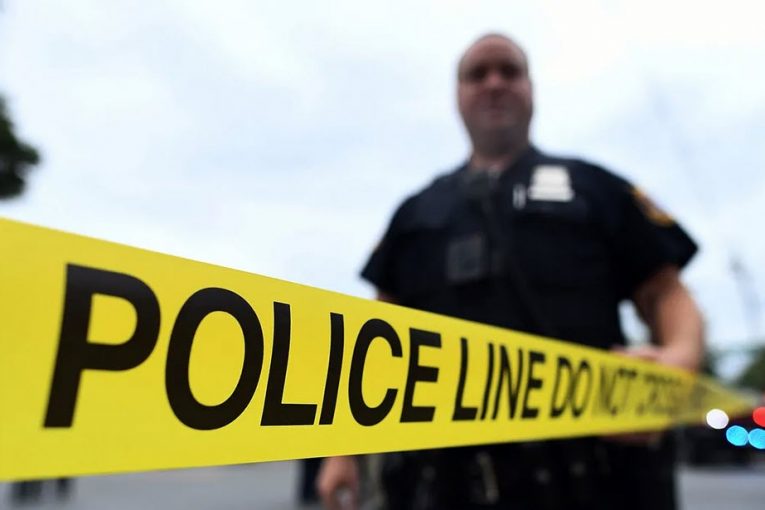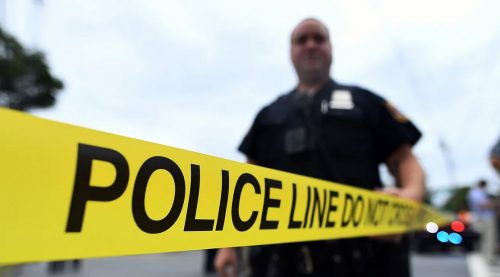

By Madi Whittemore
CHICAGO, IL – Cook County State’s Attorney Kim Foxx Monday released a six page “Do Not Call List” of law enforcement officers not allowed to testify on the witness stand during criminal cases in efforts to improve Cook County’s transparency and abidance of the Brady-Giglio policy that suggests officers who are not credible won’t be called to testify.
Cook County reportedly has the highest nationwide rate of criminal exonerations due to law enforcement misconduct and improper disclosure of information that can oftentimes question witness credibility.
According to Foxx, “The culture that allowed disreputable law enforcement officers to testify in court propelled Cook County’s reputation as the wrongful conviction capital of the country.”
Foxx added, “Releasing our ‘Do Not Call List’ and updating our internal policy regarding witness disclosure are necessary steps to improve the office’s prosecutorial integrity and help rebuild public trust in our criminal justice system.”
After two notorious U.S. Supreme Court cases, Brady v. Maryland and United States v. Giglio, the “Brady-Giglio” policy was established, the office explained.
Under Brady-Giglio, Foxx added, the prosecution during a case must abide by their constitutional obligation to divulge and disclose any “impeachment” information—meaning disclosing any information that can be used by the defense to show a witness’s lack of credibility to give testimony under oath.
According to the Cook County State’s Attorney’s Office (CCSAO), if the prosecution fails to disclose all impeachment evidence or information, it may jeopardize a person’s right to due process, violating the person’s Fourteenth Amendment rights and resulting in a new trial for the accused.
To avoid violations of due process, prior to court proceedings Assistant State’s Attorneys (ASAs) must thoroughly investigate potential witnesses to recognize any that may have impeachment evidence under the Brady-Giglio policy, the office said.
The CCSAO added, if ASA’s discover impeachment evidence of a government witness, they must contact their supervisor and the CCSAO’s Chief Ethics Officer. The CCSAO’s Chief Ethics Officer will determine whether or not disclosure is needed on the witness and if so, will provide the evidence to the defense and the witness at the appropriate time.
Currently, the CCSAO has two lists containing names of law enforcement officers and expert witnesses who require disclosures of information under Brady-Giglio.
The first list is the “Disclosure List” which consists of witnesses’ names in an internal database who may have impeaching material and are subject to disclosure in court proceedings.
The second list is the “Do Not Call List,” which consists of law enforcement officers’ names in a public database that cannot give testimony or be on the witness stand due to a variety of reasons such as alleged misconduct, corruption, past stripping of powers, or any other reasons that could compromise witness credibility.
For example, Jason Van Dyke (who was a Chicago police officer that was stripped of his police powers) is on the “Do Not Call List.” According to this list, Van Dyke cannot be a witness in any case because of his past misconduct and role in the fatal shooting of 17 year old Laquan McDonald.
CCSAO highlights that Cook County has struggled with a lack of transparency and fairness in its criminal justice system in the past, with the disreputable nature of certain witnesses and a lack of justice being served.
However, both CCSAO and Foxx claim that Cook County is dedicated to reforming its criminal justice system and the release of the “Do Not Call List” is one of the first steps toward doing so.
Other reforms that are being implemented include treatment options for non-violent offenders, offenders with mental health issues, overturning of wrongful convictions and dismissing convictions of non-violent drug offenders.
The full Cook County list is available to view here and is subject to change at any time based on new information: cookcountystatesattorney.org/bradygiglio.